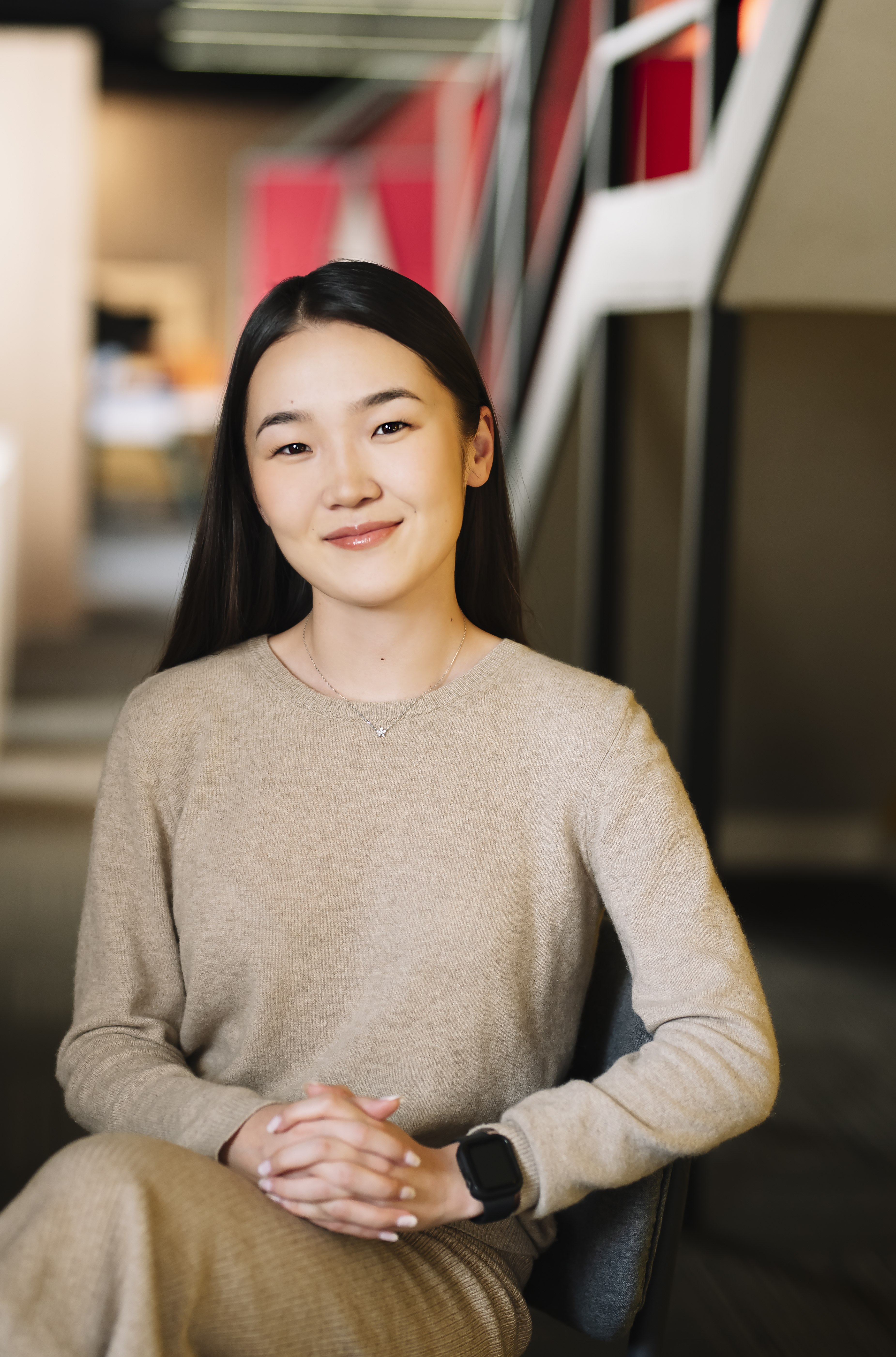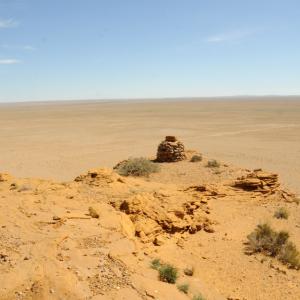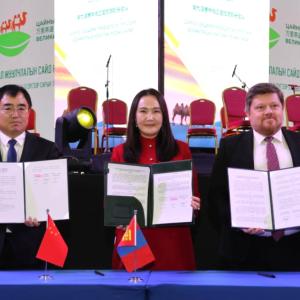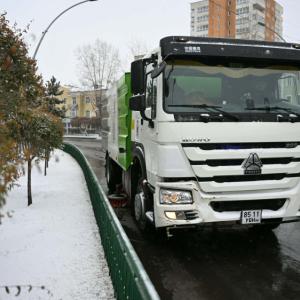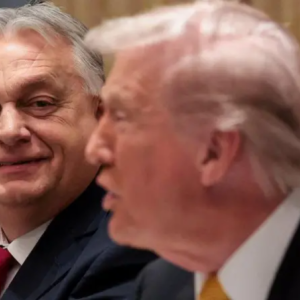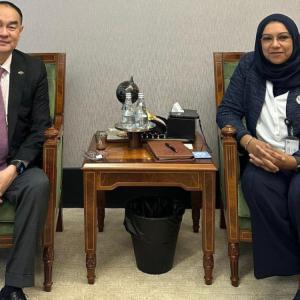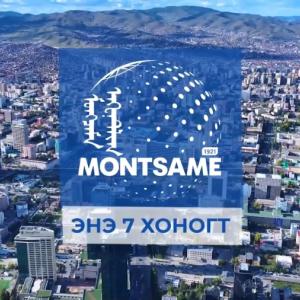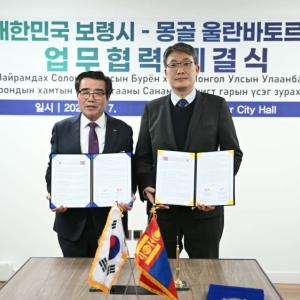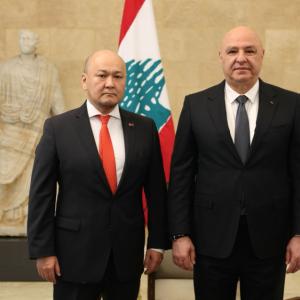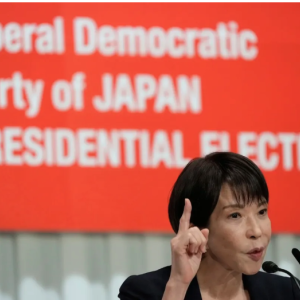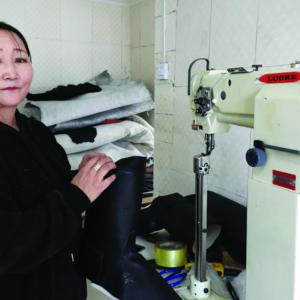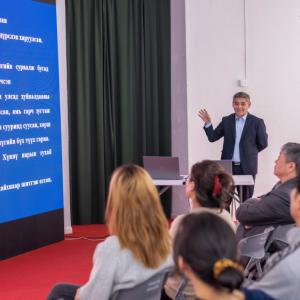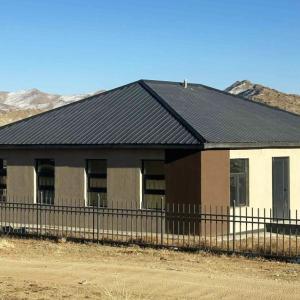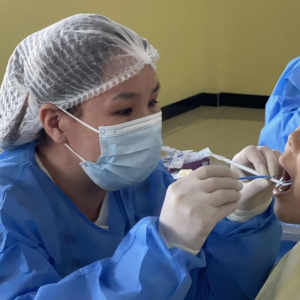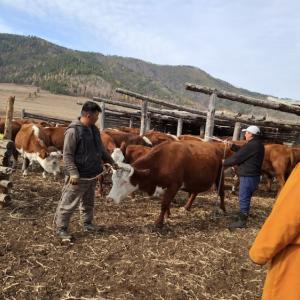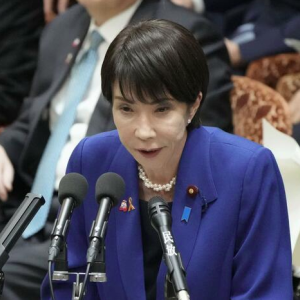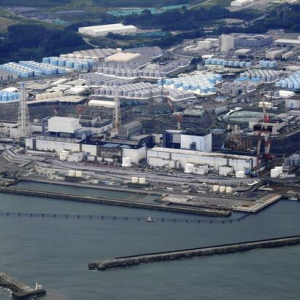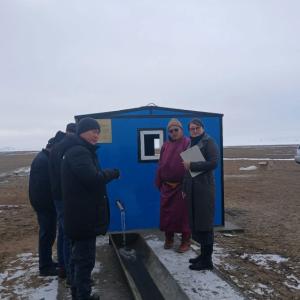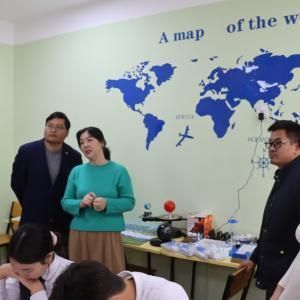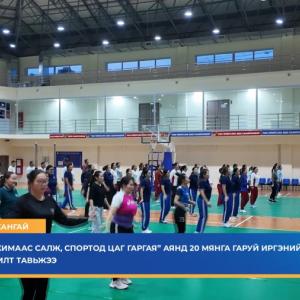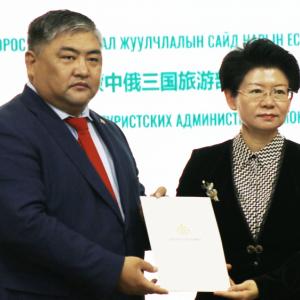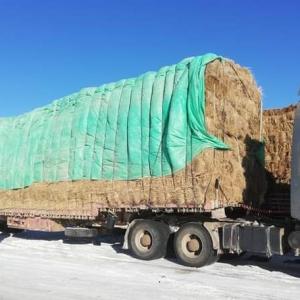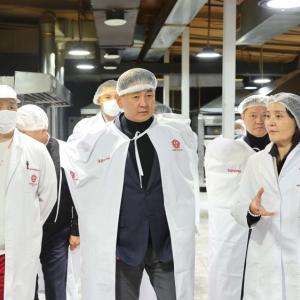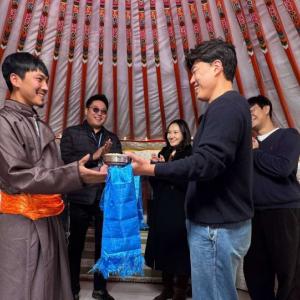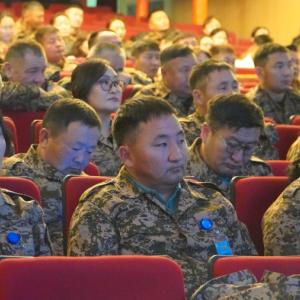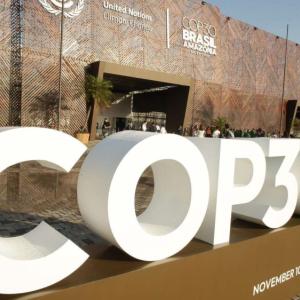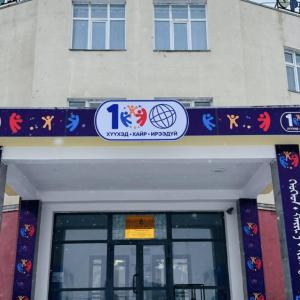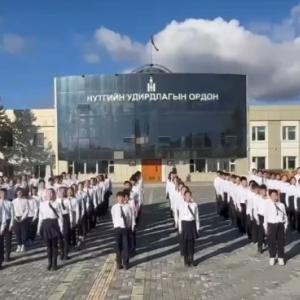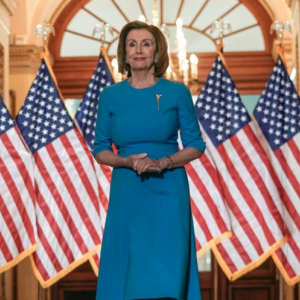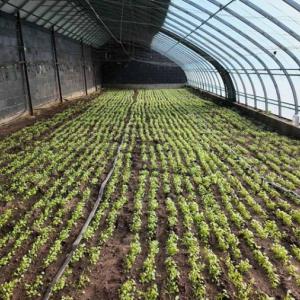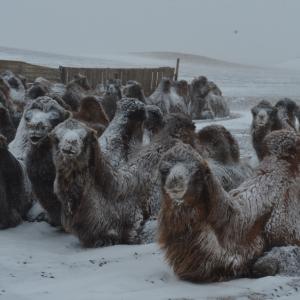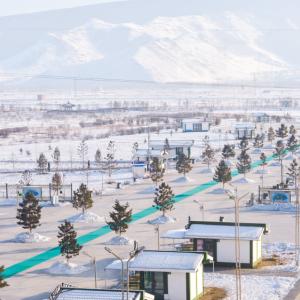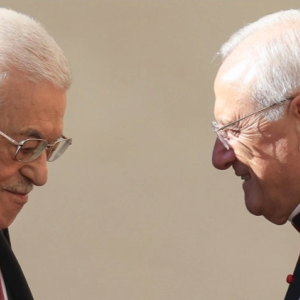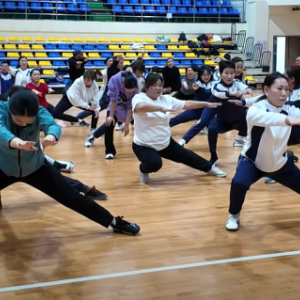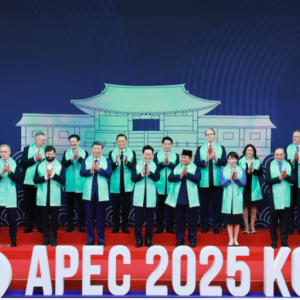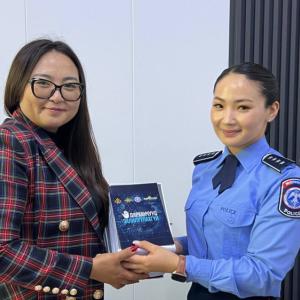Global South Media Leaders Discuss AI, Peace, Information
Society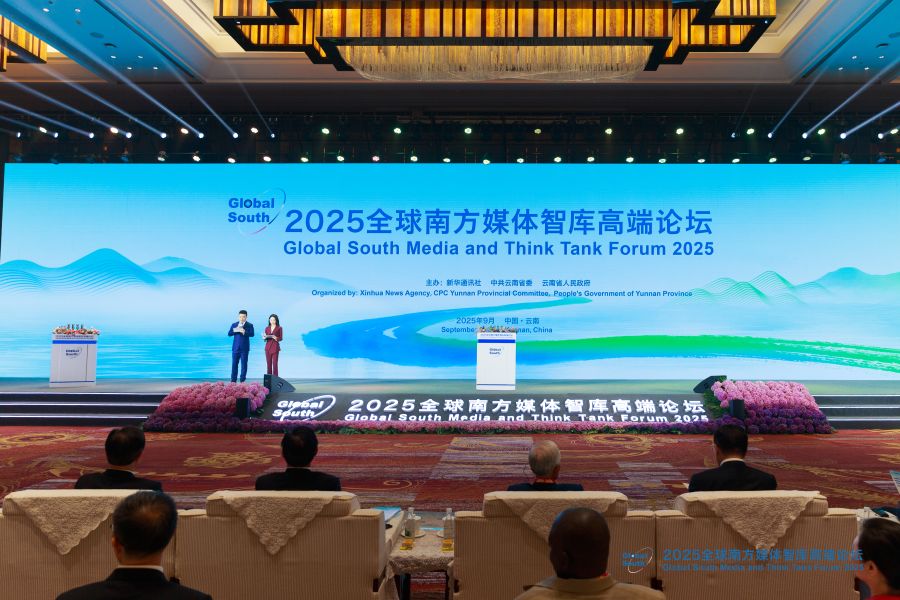
Kunming, September 9, 2025. /MONTSAME/. The Global South Media and Think Tank Forum 2025 and the Fourth Yunnan International Communication Forum were held from September 5 to 9, 2025, at the InterContinental in Kunming, Yunnan Province, People’s Republic of China.
Co-hosted by Xinhua News Agency, the Communist Party of China (CPC) Yunnan Provincial Committee, and the Yunnan Provincial People’s Government, the Forum brought together over 500 participants representing 260 institutions from 110 countries under the theme “Empowering Global South, Navigating Global Changes.”
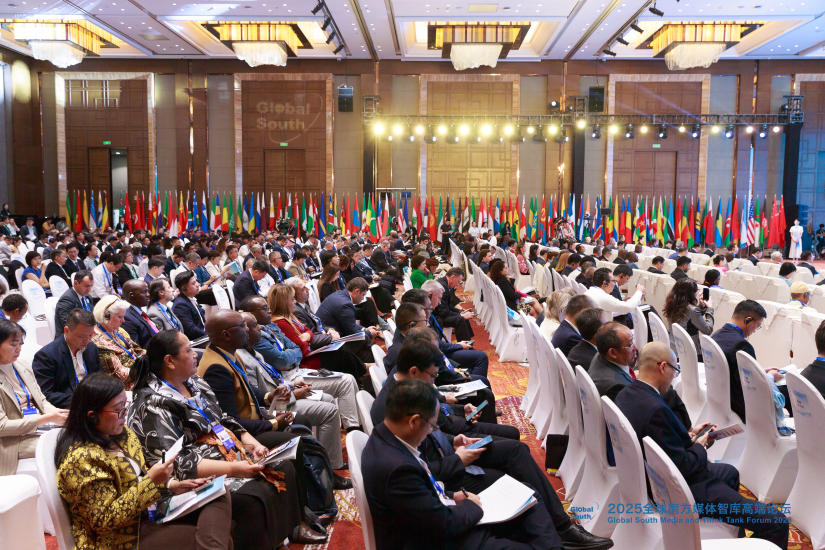
The forum provided a platform for delegations from media, think tanks, government agencies, academic institutions, and business communities to conduct in-depth exchanges focusing on the following four pivotal areas:
1. building consensus on peace;
2. identifying drivers of development;
3. exploring new avenues of cooperation;
4. advancing dialogue among civilizations.

Opening the Global South Media and Think Tank Forum 2025 on September 6, 2025, a children’s choir performance and a synchronized video were presented. The Deputy Secretary of the CPC Yunnan Provincial Committee and Governor of Yunnan Province, Wang Yubo, as well as the Secretary of the CPC Yunnan Provincial Committee, Wang Ning, opened the Forum with a warm welcome and gratitude to all distinguished guests.
Executive Deputy Head of the Publicity Department of the CPC Central Committee, Hu Heping, remarked, “I am confident that the Forum will play a significant role in deepening communication and facilitating Global South nations in gathering collective strength for cooperation in building a better future for all. First of all, solidarity and multilateralism are the hallmarks of human progress. Secondly, cooperation is vital, as the tougher the task, the greater the need for cooperation. Together, we will create a multi-pillar world with inclusive globalization and protect the legitimate rights of developing countries. Thirdly, promoting inclusive technology, such as artificial intelligence, and eliminating the digital divide are crucial in facilitating Global South nations to convey the true and comprehensive image of the Global South to the rest of the world. Lastly, people-to-people exchange and mutual learning among civilizations are to be prioritized. The Global South Media and Think Tank Forum 2025 presents an opportunity to come to a consensus among media entities in the Global South.”
The President of Xinhua News Agency, Fu Hua, reminded, “President of the People’s Republic of China, Xi Jinping, emphasized the need to defend the common interests of the Global South nations, which contribute approximately 80 percent of global economic output,” underscoring the importance of solidarity, friendship, cooperation, and independence.
 UN Under-Secretary-General for Global Communications, Melissa Fleming, highlighted in a video speech, “Promoting peaceful societies and a healthier planet is becoming harder with each year. Messages are becoming more complex. Powered by algorithms and sensational content, information on social media began to lack sober facts or constructive solutions. In addition to pseudoscience, hatred, and conspiracy, AI rings new alarm bells, simultaneously with the rise of fake news sites. With deepfakes becoming highly personalized and convincing, even seasoned journalists struggle to spot misinformation.
UN Under-Secretary-General for Global Communications, Melissa Fleming, highlighted in a video speech, “Promoting peaceful societies and a healthier planet is becoming harder with each year. Messages are becoming more complex. Powered by algorithms and sensational content, information on social media began to lack sober facts or constructive solutions. In addition to pseudoscience, hatred, and conspiracy, AI rings new alarm bells, simultaneously with the rise of fake news sites. With deepfakes becoming highly personalized and convincing, even seasoned journalists struggle to spot misinformation.
Thus, the United Nations urges a more humane information space, where damaging content is not promoted, disinformation is no longer monetized, and accurate, reliable information is more accessible. Last year, the UN adopted the UN Global Principles for Information Integrity as an advocacy tool for a healthier information ecosystem. A well-informed, engaged public, which is vital for meaningful reform, needs ethical professional journalism that they can trust and a press that acts with integrity. The UN urges media leaders to stand up for information integrity, safeguard our future quality journalism based on facts and reality, and find advertisers who are part of the solution, not the problem.”
During the Forum, the Global South Joint Communication Partnership Network was officially established, and the Global South Media and Think Tank Forum Yunnan Consensus was released as a key outcome of the Forum.

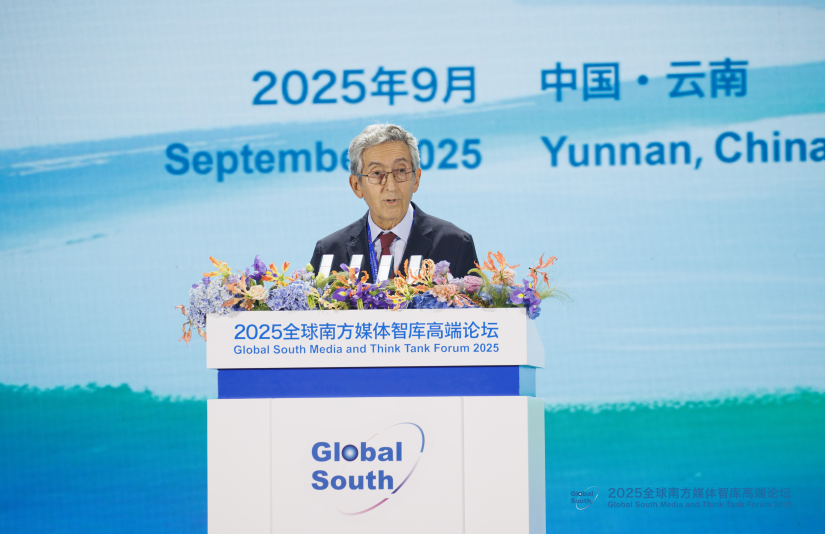 The Plenary Session and the Fourth Yunnan International Communication Forum opened with an ethnic costume fashion show. Executive Director of the South Center, Carlos Maria Correa, delivered a speech, emphasizing the importance of cooperation and support in developing mineral resources. Furthermore, General Director of the Ministry of Information of Lebanon, Hassan Mohamad Falha, warned about “the fast-travelling false news and misinformation, distributing faster than real news and the truth”, urging the maximized positive role of new technology and media in communication and partnership.
The Plenary Session and the Fourth Yunnan International Communication Forum opened with an ethnic costume fashion show. Executive Director of the South Center, Carlos Maria Correa, delivered a speech, emphasizing the importance of cooperation and support in developing mineral resources. Furthermore, General Director of the Ministry of Information of Lebanon, Hassan Mohamad Falha, warned about “the fast-travelling false news and misinformation, distributing faster than real news and the truth”, urging the maximized positive role of new technology and media in communication and partnership.
The Forum also featured the “New Rhythms for Intangible Cultural Heritage” cultural fair showcasing Yunnan’s original world-famous Pu Er tea, as well as craftworks, sculptures, fruits, and snacks from Kunming, China.
The Forum on AI Technology and Media was held on September 7, 2025, at Haigeng Convention Center in Kunming, China. The Forum began with a robot opening speech and dance performance.
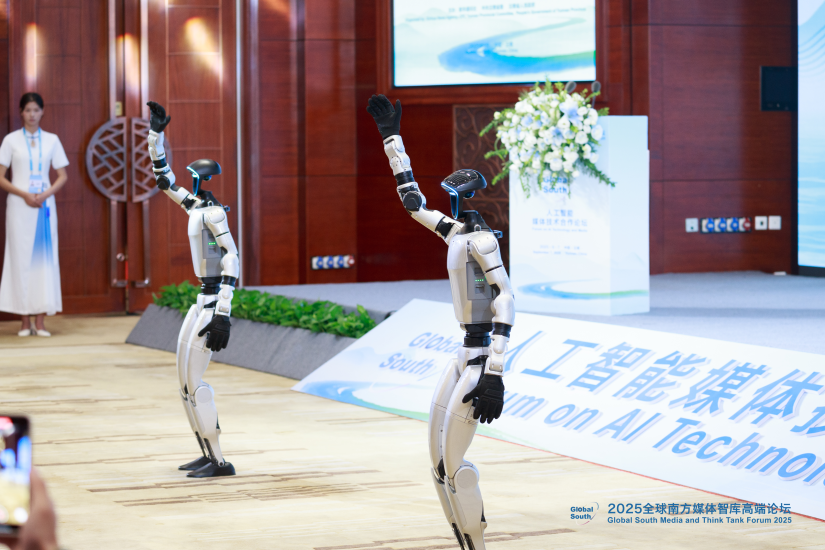
Deputy Minister of the Ministry of Planning and Economic Development of Sierra Leone, Jonathan Titus-Williams, delivered a speech, emphasizing artificial intelligence as a tool for efficient resource usage that can amplify local voices, support inclusive modernized economic growth, boost youth employment, and reduce the digital divide.
Vice President of Kuaishou and Head of Kuaishou Research Institute, Cai Xiongshan, delivered a presentation titled “AIGC (Artificial Intelligence Generated Content) for Digital Transformation,” providing an overview of the history and projections of AI generation from 1956 until 2030, showcasing the latest examples of Chinese AI-generated entertainment videos, including fantasy films, e-commerce advertisements, live-streaming digital humans, and AI assistance. The most notable and curious AIGC examples were the contents “AI + Cultural Heritage,” where museum artifacts came to life to promote the museum through dance, and “AI + Tourism,” where various animals promote a country’s cultural heritage through a musical group performance.
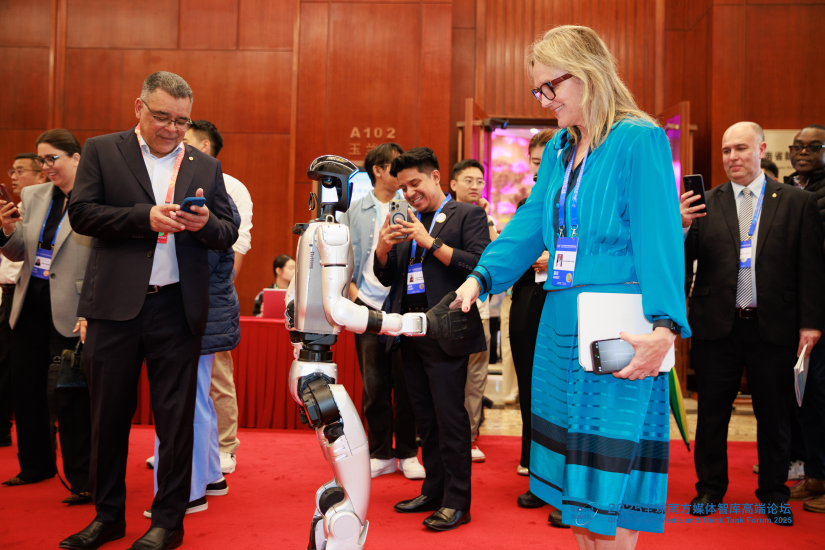
Chairman of Myanmar Narrative Think Tank, Ko Ko, urged, “The real question is not whether AI is transforming media—it already is—but how to ensure that these AI transformations reflect our realities. The answer lies in Global South collaboration, increased investment in local language AI models, and building human capacities, including journalists, editors, and fact-checkers, to shape AI to reflect our realities. Regarding AI, we must shape it, guide it, and make it serve our people and future.”
Zhu Zhaoying urged, “The year 2025 is an explosive year for the application of AI in financial, medical, transport, manufacturing, and many more industries all around the world. The underlying logic behind this growth is ‘AI for science’. The media sector has already integrated with AI technology.
In the past, AI was our assistant for relatively easier tasks, whereas now, these ‘intelligent agents’ help us with more difficult tasks like editing, for instance. Moving forward, a new generation of intelligent agents can help us with more valuable tasks. AI will bring an increase in productivity globally.
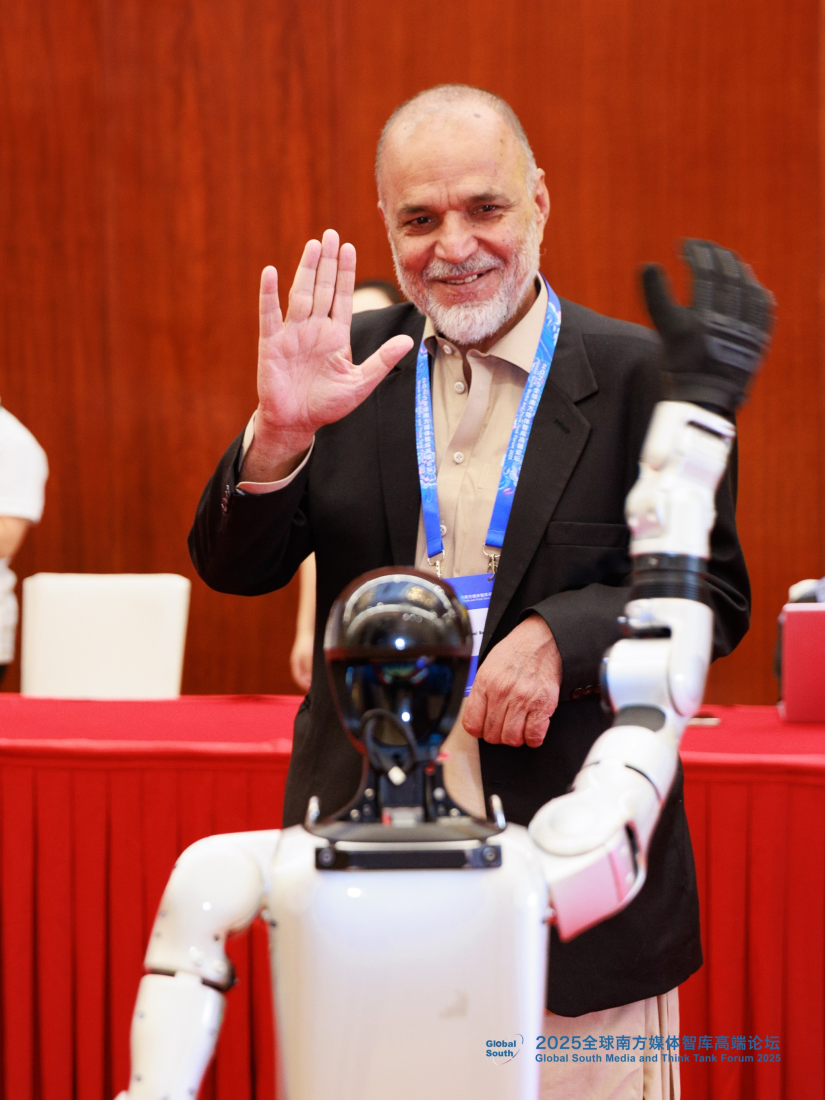
AI’s key three elements are data, computing power, and algorithm. Additional key aspects of AI are application scenarios and corresponding governance. Although the Global South comprises 78 percent of the global population, our computing power accounts for only 17 percent of the world’s computing power. To address this, I propose that the Global South join hands in:
1. technology research to build more technology platforms and reduce dependence on Western technology;
2. cross-border data sharing and the creation of cross-realm data exchange mechanisms to ensure the flow of compliant data across borders;
3. capacity building and training courses and programs to develop and educate high-end AI talents that can significantly increase the capacity in AI development and application.
In summary, for Global South nations, AI synergy is an indispensable opportunity. If we use it through policy coordination, cultural exchange, and cooperation, we can build a more beneficial, new future.”
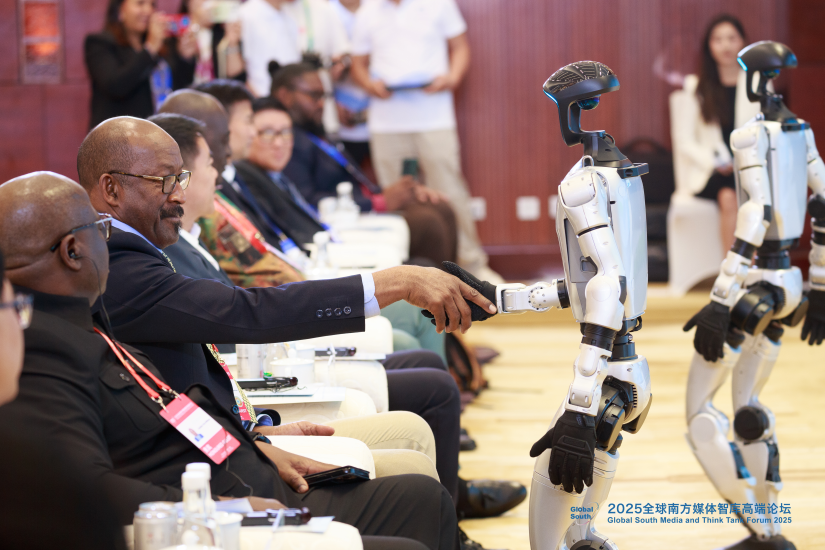
Over the past year, Xinhua News Agency has organized the ASEAN-China Media and Think Tank Forum in Malaysia, the China-Central Asia News Agencies Forum in Kazakhstan, and the BRICS Media and Think Tank Forum in Brazil. Additionally, Xinhua will host the Global South Media and Think Tank Forum: China-Africa Partnership Conference in November 2025 in South Africa.
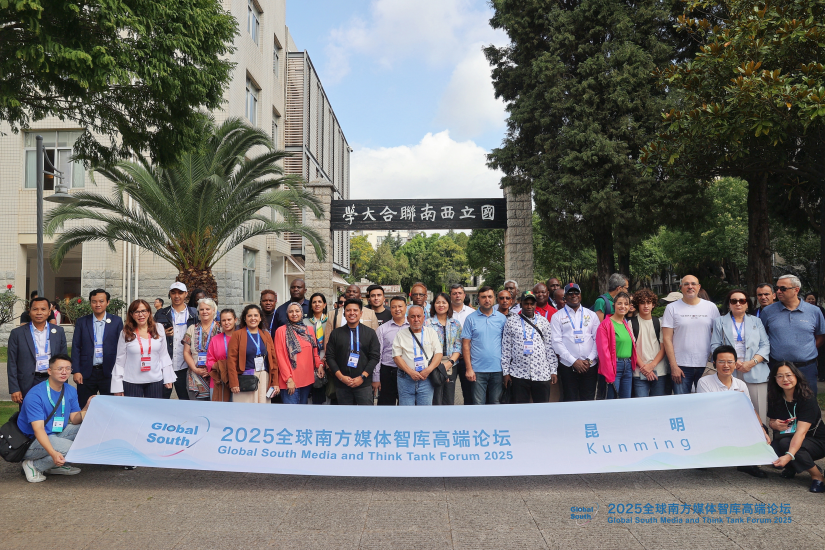
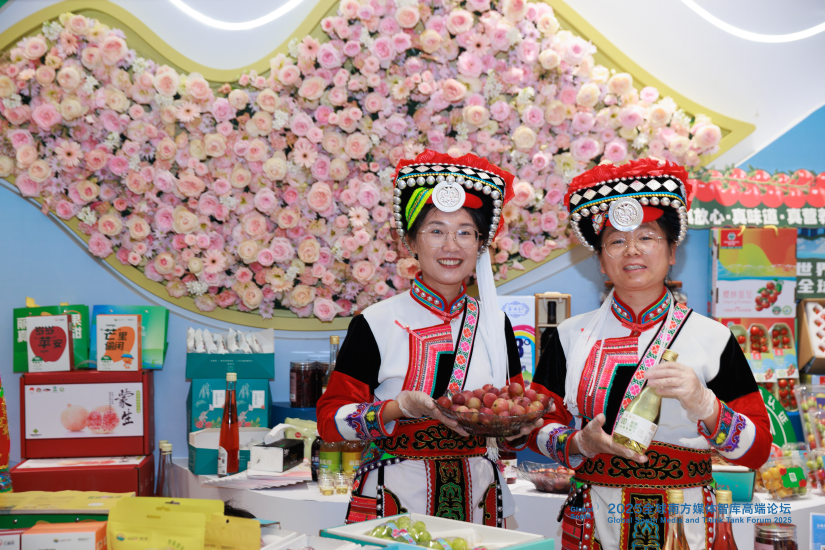
 Улаанбаатар
Улаанбаатар





